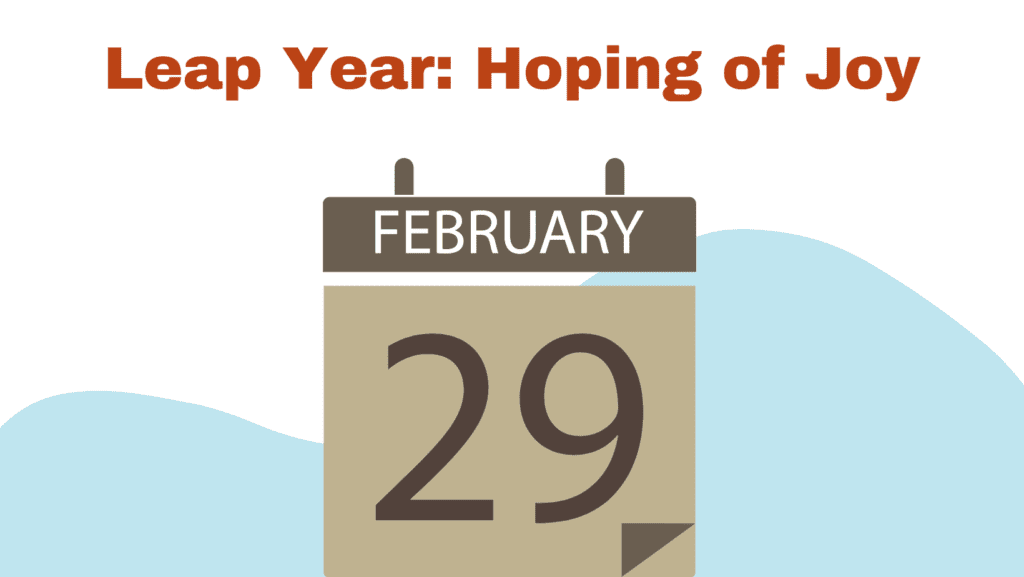
Leaping on One Foot!
Welcome to the wild and wacky world of leap years – those magical moments when the calendar decides to do the cha-cha with time itself! By the way, do you happen to know how to say Leap Year in Spanish? No? Año bisiesto! Stick with us! We’ll teach you a few things.
We’re diving into the heart of this time-traveling spectacle to uncover why it’s called a “leap year” and maybe, just maybe, teach you a leap or two in our very own Kasa de Franko language dance. Get ready for a rollercoaster ride through history, astronomy, and a sprinkle of humor!

The Origin of the Leap Year Moniker
Picture this: ancient Romans scratching their heads, calendars in hand, trying to make sense of time. They noticed something peculiar – a bizarre twist in the calendar’s step, a leap of faith into the future.
And so, “bis sextus dies ante calendas martii” was born, meaning “twice the sixth day before the Kalends of March.” Rolls off the tongue, right? No? Well, that’s Latin for you!
“Bis sextus dies¨ became día bisiesto in Spanish. Año bisiesto is the Spanish translation of Leap Year. We’ll tell you more about that story of Why is called año bisiesto in Spanish? in our next article–in four years, of course.

Why the Leap Year Ticket?
Also discover with us why February got the Leap Day Ticket for being the last month of year. Wait! What? Whacha you talking ’bout Willis? Yes, That’s correct! You heard rigth! Not only was it the last one, but, actually, February didn’t exist before the Mid-8th century BC. What? Again? Are you kidding me?
No! That´s correct: February wasn’t part of the Roman calendar before Numa Pompilus, the mythical second king of Rome, who succeeded Romulus. We’ll tell you that story on different posts: Leap Year isn’t Sleep Year! and Why February only has 28 Days?—except for Leap Years, of course. As usual, it’s all about power.

Isn’t Running Better than Leaping?
But why “leap”? Is the calendar trying out for the Olympics? Wouldn’t it be better to run? Turns out, it’s a bit like a cosmic hopscotch.
That extra day in February makes the calendar jump ahead, leaping over its usual rhythm of 365 days. Why? To keep up with Earth’s revolving antics around the sun, of course!
So, every four years, the calendar takes a little hop, skip, and jump, giving us a bonus day to ponder the mysteries of time. Keep reading to find out how it started,

The Great Leap Forward in History
Fast forward to Julius Caesar, the guy who thought, “Why not spice up this calendar business?” In 45 B.C., he introduced the Julian calendar, embracing the concept of leap years.
This revolutionary idea was like tossing confetti into the air – everyone loved it! The calendar began its four-yearly jig, adding an extra day to February and ensuring our schedules stayed in harmony with the cosmos.

But wait, there’s more!
Enter Pope Gregory XIII in 1582 with the Gregorian calendar. He refined the leap year system, making it a bit like clockwork. Years divisible by 100 would skip the leap, except for those divisible by 400. Got it? If not, just blame it on the calendar – it’s a tough act to follow!

Is the Year Really Leaping in one Foot?
Indeed, the year embarks on a celestial pirouette, gracefully leaping forward with a single cosmic plié. Picture it as a cosmic ballet where the year, adorned in celestial attire, elegantly lifts one foot off the calendar stage every four years.
This nimble leap is not just a routine; it’s a celestial performance, a waltz through the cosmic dance floor. As the Earth pirouettes around the sun, it occasionally falters in its rhythm, trailing a bit behind the solar music.
The leap year, with its one-footed jump into the future, acts as the grand finale, a celestial exclamation point in our annual choreography. It’s as if the year, donned in stardust and cosmic sequins, takes a single graceful leap to keep pace with the cosmic symphony.

Calendar and the cosmos
So, yes, the year, in its cosmic tutu and ballet slippers, performs a celestial leap, maintaining the harmony between our earthly calendar and the grand orchestration of the cosmos.
It’s a dance of precision, a twirl through time, and a leap into the cosmic unknown, all executed with elegance by our celestial partner, the leap year.

What if Our Calendar just Run instead of Leap?
Ah, the majestic Leap Year, where calendars grow an extra day, like a surprise gift you didn’t know you needed. Now, you might wonder, why “leap” and not “run”? Are we training our years for a marathon? Well, let’s dive into the quirks of temporal athleticism.
Imagine if our calendar decided to run instead of leap. Picture January sprinting through the months, desperately trying to catch up with December. We’d have February panting at the back, perpetually the last one picked for the temporal relay race.
But no, we’ve chosen the elegant art of leaping, a ballet of time, if you will. Why? Because running is so… mundane. We live in a world of deadlines and schedules – who needs a calendar that’s always in a hurry?

Timing with Grace!
Leaping, on the other hand, is a statement. It’s like the calendar saying, “I’m not just adding a day; I’m doing it with style!” It’s the Michael Jordan slam dunk of temporal maneuvers. February gracefully takes that extra day, leaps through the hoop of time, and scores a point for the cosmic basketball team.
So, next time you think, “Why leaping?” remember, we’re not just managing time; we’re choreographing a dance with it. A dance that pirouettes through days and cha-chas through months, all in the name of keeping our calendars as nimble as a prima ballerina on leap day.
And that, my friends, is why we leap instead of run – because even time itself deserves a moment of grace and a touch of humor.

Leap Year Shenanigans
Now that we’ve unveiled the secrets behind the name, let’s peek into the mischievous side of leap years. Rumor has it that on Leap Day, calendars throw parties with days dancing around like it’s a leap carnival!
And did you know? According to the Leap Year Handbook (totally fictional huh!), it’s compulsory to wear at least one item that can help you jump – trampolines, pogo sticks, or kangaroo shoes, take your pick!
There you have it, folks – the fascinating, funny, and downright fabulous tale of leap years! So, next time February 29 rolls around, embrace the leap, laugh in the face of time, and maybe, just maybe, master a leap or two in the Kasa de Franko Spanish School Happy leaping not sleeping! Unless you’d like to know what to say when sleeping with someone? Check next!

Sexy Words in Spanish?
Check out our sagas: Things Spanish People Say in the Bedroom and el Sexi Chupacabras. If you are more into traditional stories, check our legends and folktales section to learn about some interesting ladies in the Spanish culture: la LLorona, la Ciguapa, la Santa Muerte and Sarita Colonia and her Magic Kitty.

Want some Laughing before Leaping?
Check out our language Bloopers section so you can laugh at other mistakes why learning what to avoid when speaking Spanish. Learn why Mike Cocke told his girlfriend: “Me gusta la chucha de tu madre” and why you shouldn’t say “Feliz Ano Nuevo” or “Can I Molestate You!”

Leaping into Kasa de Franko Spanish!
And now, a special treat for all our fellow time-traveling language enthusiasts! At Kasa de Franko, where language leaps off the page, we’re offering free lessons in the mesmerizing art of speaking Spanish.
Learn to express yourself with flair, wit, and a sprinkle of linguistic magic. Who knows, you might just leap into a whole new world of communication!

Red for Free!
Before signing up for your free Spanish lesson, read our previous article on Leap Year to understand why the year leaps instead of runs.
Click on the red button to sign up for a free class at Kasa de Franko. Always keeping in mind…..

